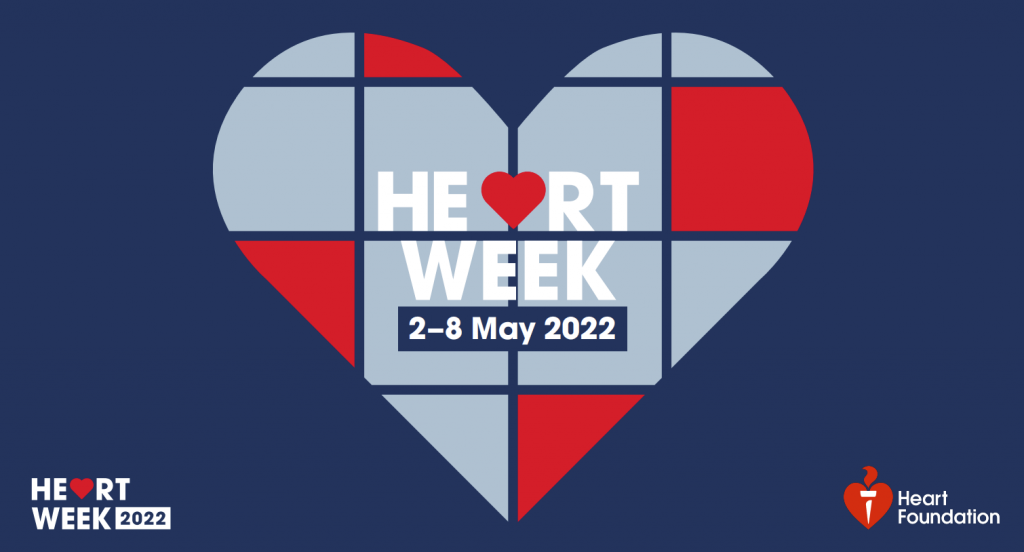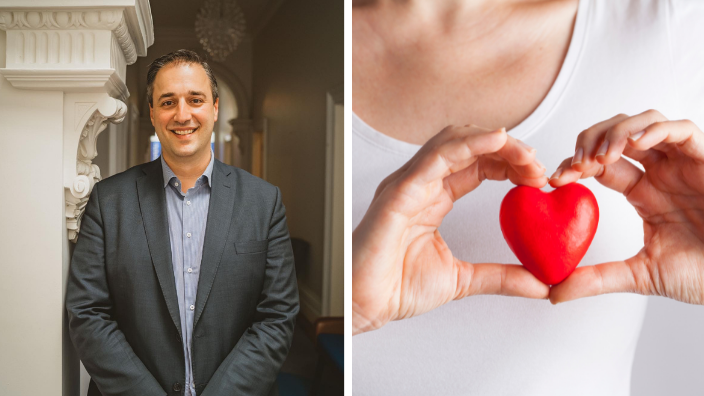* Associate Professor Arthur Nasis.
One person in Australia has a heart attack or stroke every 4 minutes, but you have the power to change this statistic. This Heart Week our message is clear: if you are aged over 45, we urge you to take action and book a Heart Health Check with your doctor today.
A recent survey of 1,000 Australians conducted by the Heart Foundation found that 64 percent of people aged between 45 and 74, representing 5.5 million Australians, had not had a Heart Health Check in the last two years, even though more than half had either high blood pressure, high cholesterol, or diabetes.
There has never been a more important time to see your doctor and focus on heart health. Heart disease is the leading cause of death in Australia. We lose more than 18,000 lives to heart disease each year.
The fact that so many people have deferred their heart health during the pandemic despite having significant risk factors for heart disease is very concerning. This, coupled with growing evidence that COVID-19 can further increase the risk of heart disease, means that heart disease could be silently and unknowingly progressing in a large number of people.
READ MORE: Dr Arthur Nasis on how a Pesco-Mediterranean diet can reduce your risk of heart disease.

The warning signs of a heart attack are tragically often the first indication that someone is at risk, and by then it is too late for heart disease to be prevented.
A Heart Health Check is a simple, 20-minute appointment where your doctor will assess your risk factors for developing heart disease and work with you to create a plan to lower this risk immediately.
A heart attack can happen to anyone, and in some cases can be fatal. It is more common in people above 45 years of age and can sometimes occur very suddenly without much warning. It occurs when one of the heart arteries become blocked, stopping blood flow to the heart muscle. The longer this is left untreated, the more damage occurs to the heart muscle and the higher the risk of sudden death.
The most common warning sign is central or left sided chest pain, discomfort, tightness or pressure that can spread to the arms, throat or back. If you or somebody near you has chest pain for greater than 10 minutes, or if the pain is severe, call Triple Zero (000) immediately for an ambulance.
A heart health check is designed to identify people at risk for developing heart disease and to put measures in place to avoid a heart attack and sudden death. Your doctor will calculate your risk by checking certain risk factors that increase heart attack risk, namely cholesterol, blood pressure, blood sugar, smoking status, exercise and dietary habits, waist circumference and weight.
Depending on these results, as well as age, family history of heart disease, and any previous history of heart problems, your doctor may reassure you, or if there is concern that your risk of heart attack is high, your doctor may recommend specific tests such as calcium scoring, CT scan of the heart arteries or a stress test.
As a result of this check-up, your doctor may recommend lifestyle changes, medications and sometimes even procedures to minimise your heart attack risk as much as possible.
It is never too late to take control of your heart health and make lifestyle choices that will reduce your risk of heart disease. Know your weight, know your waist circumference, know your blood pressure, know your cholesterol, and know your blood sugar. Eat heart healthy, as your diet is typically the biggest influence on weight and a poor diet can increase your risk. While there is no single diet that is perfect for everybody, a Mediterranean diet is a good place to start.
Minimise refined carbohydrates, processed meats, and foods high in sodium and fats. Minimise consumption of red meats, poultry, eggs, and milk. Eat more fruits, nuts, fish, vegetables, vegetable oils, minimally processed whole grains and legumes. Remember to make long term adjustments that you can sustain. Limit your alcohol intake, stay active and exercise regularly, aiming for 150 minutes of moderately vigorous activity each week. Strength training is also recommended at least 2 days per week.
Quit smoking! Smoking increases the risk of heart attack sixfold in women and threefold in men. Studies have shown that even smoking 1-2 cigarettes per day makes you twice as likely to die of any cause compared to not smoking at all. The risk increases the more you smoke. Once you quit smoking, after about 10-15 years, your risk of heart attack is about the same someone who has never smoked.
Finally, remember that stress, anxiety, and lack of sleep can increase your risk for heart disease. Take care of yourself with simple measures such as adequate sleep (seven to eight hours each night), adequate hydration and stress management techniques such as meditation or yoga to allow your mind to relax and unwind.
So, as you reflect on the loss of someone from heart disease, whether it be a family member, a close friend or a prominent community figure, remember that speaking to your doctor about your own heart disease risk, even if you don’t have any symptoms, could save your life.
*Associate Professor Arthur Nasis is a Director, Victoria Heart / Director, Acute Cardiac Services, Monash Heart / Clinical Associate Professor, Monash University

